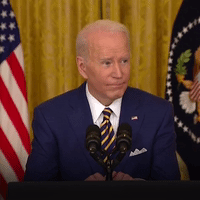So in another thread, @Ron Mexico suggested an AMA for members. I volunteered to start it off. He mentioned creating an introduction and then a free-for-all. Not entirely sure what all to include in introduction, but here goes:
I'm just south of 40. We moved to Utah in '89 from the bay area, and I spent most of my life growing up in the Sandy area. My parents had both been married previously, with my mom having three kids from her first marriage and my dad having one child from his first, very brief marriage. My parents together had my sister, who's three years older than me, and then me. I started posting on JFC in 2001, when I was 16, so I've spent well over half my life here as a member. After high school, I did a semester at SLCC at the Sandy Mall satellite location, before leaving on an LDS mission to the Midwest. I followed the Jazz peripherally by checking game scores and summaries by calling 1-800-TELL-ME (though that's only 6 numbers so I can't remember the actual digits you'd call). I had left in the middle of the post-Stockton-and-Malone season and returned midway through Deron's rookie year. I had 13 credits to my name from SLCC and when I returned I hit the ground running and graduated two years later. My wife and I met living at the same apartment complex about a year after my mission. During that time, I had worked in a steel warehouse and steel yard that was a pretty crazy physical job, but paid quite well for the time. I had done that part time until I graduated, before going full time. My wife and I had our first kid right when I graduated, so she stopped working and I went full time for a year while I was applying to medical school. A year later, we moved to Missouri for medical school and had another kid. After medical school, we went to central Texas for 4 years for a residency in psychiatry, and had two more kids. After that, we moved back to Utah where we ended up having a surprise #5 kid (this time a girl, as we had 4 boys previously). From there, we've been busy with our kids. I stay fairly busy with work, being involved in a few different things. Slowly over the past few years, I've been working toward finally putting out some music. In high school I did a little bit of recording as I play guitar, bass, drums and keyboard, and in the past couple months I've been writing a few songs that I've put down rough tracks for but I'm needing to get an actual setup on a computer rather than my old 8-track from high school. My wife an I spend a lot of time together and we're best friends.
Ask away.
I'm just south of 40. We moved to Utah in '89 from the bay area, and I spent most of my life growing up in the Sandy area. My parents had both been married previously, with my mom having three kids from her first marriage and my dad having one child from his first, very brief marriage. My parents together had my sister, who's three years older than me, and then me. I started posting on JFC in 2001, when I was 16, so I've spent well over half my life here as a member. After high school, I did a semester at SLCC at the Sandy Mall satellite location, before leaving on an LDS mission to the Midwest. I followed the Jazz peripherally by checking game scores and summaries by calling 1-800-TELL-ME (though that's only 6 numbers so I can't remember the actual digits you'd call). I had left in the middle of the post-Stockton-and-Malone season and returned midway through Deron's rookie year. I had 13 credits to my name from SLCC and when I returned I hit the ground running and graduated two years later. My wife and I met living at the same apartment complex about a year after my mission. During that time, I had worked in a steel warehouse and steel yard that was a pretty crazy physical job, but paid quite well for the time. I had done that part time until I graduated, before going full time. My wife and I had our first kid right when I graduated, so she stopped working and I went full time for a year while I was applying to medical school. A year later, we moved to Missouri for medical school and had another kid. After medical school, we went to central Texas for 4 years for a residency in psychiatry, and had two more kids. After that, we moved back to Utah where we ended up having a surprise #5 kid (this time a girl, as we had 4 boys previously). From there, we've been busy with our kids. I stay fairly busy with work, being involved in a few different things. Slowly over the past few years, I've been working toward finally putting out some music. In high school I did a little bit of recording as I play guitar, bass, drums and keyboard, and in the past couple months I've been writing a few songs that I've put down rough tracks for but I'm needing to get an actual setup on a computer rather than my old 8-track from high school. My wife an I spend a lot of time together and we're best friends.
Ask away.


